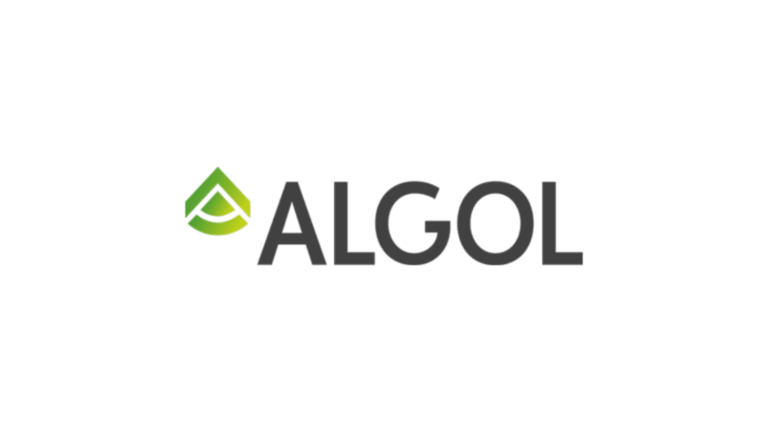
Corporate sustainability reporting is rapidly becoming a high priority for companies as stakeholders and regulators demand greater transparency on environmental, social, and governance (ESG) issues. As part of the EU’s Green New Deal, the Corporate Sustainability Reporting Directive (CSRD) entered into force on 5 January 2023 imposing new reporting requirements on around 50,000 companies.
What is the CSRD?
The CSRD is a European Union Directive that—in an all-time first—brings sustainability reporting to the same level as financial reporting. This involves significantly broadening the scope of sustainability reporting requirements from the existing Non-Financial Reporting Directive (NFRD) which has impacted around 11,000 companies. The CSRD aims to upgrade consistency, comparability, and reliability of sustainability reporting by standardising information that must be disclosed. In practice, the companies now impacted will need to disclose sustainability metrics in their management report, filing records in a digital, machine-readable format. This requirement is part of efforts by the EU to develop a ‘European Single Access Point’ to sustainability data, so companies should expect the implementation of a specific standardised digital reporting format in the future. The Directive’s strong overall theme is a significant refining and enhancing of several tools in the EU’s expanding toolbox, employed in working towards its 2050 climate-neutrality target and the United Nations’ Sustainable Development Goals (SDGs).
Which companies are affected by the CSRD?
The CSRD applies to:
- All listed companies on the EU regulated market (including small and medium sized enterprises [SMEs], but not micro-enterprises with less than 10 employees or below EUR 20 million in turnover).
- All organisations with two of: (a) a balance sheet of EUR 20 million +, (b) a net turnover of EUR 40 million + and (c) 250 + employees.
- All parent companies of subsidiaries meeting the above criteria.
- Non-EU companies with a net turnover of EUR 150 million that have a subsidiary within the EU with a turnover of EUR 40 million.
- Certain financial institutions, consistent with the existing NFRD.
These companies must disclose information on their ESG performance, risks, and impacts in their management report, meaning that they must bring sustainability reporting forward to the time of publishing their annual report. Listed companies must provide the same information in their annual report and large unlisted companies must publish a separate sustainability report. Subsidiaries of a large group are nevertheless exempt from reporting if the parent undertaking submits a conforming consolidated sustainability report.
When will the new reports be required?
The staggered application of reporting requirements considers the preparedness of relevant companies to comply:
- those that are already within the scope of the NFRD will have to comply with the new CSRD from 1 January 2024 (first reports in 2025),
- other large companies (250+ employees) will have to comply with CSRD from 1 January 2025 (first reports in 2026),
- listed SMEs from 1 January 2026 (first reports in 2027);
- and non-EU companies with branches/subsidiaries from 1 January 2028 (first reports in 2029).
What metrics do companies need to report?
The metrics that companies need to report depends on their specific business operations, and cover a wide range of topics, including greenhouse gas emissions, water use, waste management, biodiversity, employee health and safety, human rights, and anti-corruption and bribery. The first set of standards specifically updated for the CSRD are being developed by the European Financial Reporting Advisory Group (EFRAG) and are expected for publication from June 2023. The Directive also requires companies to report on their sustainability policies and risks by disclosing how these policies are integrated into their business strategy.
Alignment with Other Reporting Standards
Foreign companies with subsidiaries in Denmark and shareholders in Danish companies may also have to comply with other ESG reporting standards, such as those of the International Sustainability Standards Board (ISSB), Sustainability Accounting Standards Board (SASB) or the ESG-related rules which the US Securities and Exchange Commission (SEC) proposes to introduce this year. While these reporting standards share a general alignment in as much as focusing on sustainability, the various reporting subjects and metrics required differ, so it is unavoidable and important that separate attention be directed to compliance with CSRD.
How to Ensure Accurate and Efficient Reporting
The reporting process can be time-consuming and complex, requiring companies to collect and analyse a significant amount of data. To ensure accurate and efficient reporting, companies should consider implementing more sophisticated data collection processes, such as automated data collection and data analytics. Independent third-part assurance will be mandatory from 2025 (on the 2024 year-end reports).
Furthermore, companies should actively address integrating pre-existing internal sustainability reporting processes with their broader business strategy and day-to-day decision-making processes. This will go a long way to leveraging sustainability reporting as a tool for improving performance and achieving long-term growth in the EU.
Impact on small and medium-sized enterprises (SMEs)
The CSRD recognises challenges that SMEs will face in complying with the new reporting requirements. As such, the Directive includes a proportionality principle which allows SMEs to tailor their reporting to their specific circumstances. For example, until 2028 SMEs are provided a transitional period during which they can opt out of reporting requirements. Nevertheless, the enhanced credibility and increased attractiveness to external investors the SMEs stand to gain should be considered from a business perspective, as well as from the perspective of cooperation with the market, as the CSRD significantly increases momentum behind creating a consistent and coherent flow of sustainability information throughout the financial value chain. SMEs should expect to increasingly receive requests for sustainability information from stakeholders who will rely on that data to in turn meet their own compliance requirements under the CSRD, meaning that early adoption and innovative use this information for core business model development would be a level-headed approach to future-proofing commercial growth.
Key take-aways
Foreign companies with subsidiaries in Denmark and foreign investors or shareholders in Danish companies should familiarise themselves with the new requirements and encourage active steps to comply, noting of the following:
- The CSRD is now in effect and is being enforced.
- The Directive’s purpose is to improve the quality, consistency, and comparability of sustainability reporting across the EU, for the benefit of external stakeholders.
- The Directive takes a ‘risk-based’ approach to reporting, so requirements for SME’s are proportional to their size.
- New forms of reporting and compliance are introduced in the Directive.
Overall, the CSRD represents a significant step forward in the EU’s efforts to promote sustainability and long-term development. With careful planning and preparation, companies can meet the CSRD’s reporting obligations while also enhancing their sustainability performance and reputation.
Magnusson
Magnusson’s advanced commercial regulatory team regularly advises on climate and ESG related issues.
If you have questions on how to operate your business in Denmark when it comes these issues, please do not hesitate to get in touch.
Contact

Tom Stener Froberg
Partner / Head of Employment
Employment, Commercial, Corporate and M&A, EU and Competition, Public procurement, Transport
Send me an email +45 82 51 51 00 +45 40 43 18 40
Matthew Campbell Thorn
Associate
Corporate and M&A, Banking and Finance, Commercial, Energy, Environment, ESG and Sustainability, Intellectual Property, Middle East Group, Outbound Services
Send me an email +45 82 51 51 00 +45 93 84 06 84









